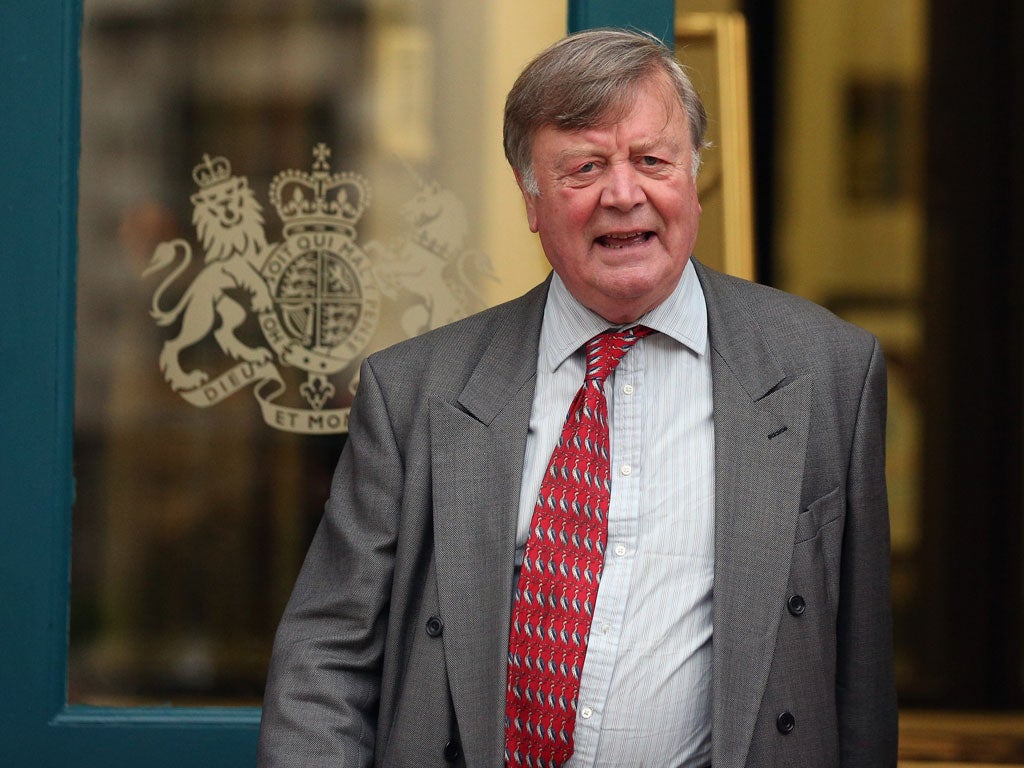Think again! MPs' committee criticise absence of safeguards on secret court plans

The Government's controversial plans for secret courts came under fire from all sides today, with the Justice and Security Bill expected back before the House of Commons early next week.
The influential parliamentary Human Rights committee said that it remained unconvinced that closed material procedures (CMPs) were necessary in civil cases and noted the breadth of opposition to such a “radical departure from fundamental common law traditions”.
At the same time more than 700 legal professionals insisted the plans were “dangerous and unnecessary” in an open letter. One suggested the proposals were simply aimed at covering up the UK's “complicity in rendition and torture”.
The Government says that proposals for CMPs, where evidence could be heard in secret, are necessary in matters of national security as it has been forced to abandon cases - such as the one brought by former Guantanamo Bay detainees - and pay out compensation because it could not introduce sensitive information from intelligence sources.
Today the cross-party Joint Committee on Human Rights (JCHR) criticised the government for failing to include some of its proposed safeguards and urged it to think again.
Its report condemned the fact that it had not introduced a condition that CMPs should only be used as a “last resort” or that the need for fair and open administration should be balanced with national security issues. It also called on the government to offer a fairer level playing field by giving its opposition some indication of what secret material was being withheld.
While welcoming some amendments to the Bill, the committee’s chairman Dr Hywel Francis MP said they did not go far enough: “We remain sympathetic to the problems faced by the Government in dealing with sensitive material, but the Bill as drafted does not put in place sufficiently robust safeguards to oversee the exercise of what are very wide-ranging powers....We urge the Government to think again and make sure that secret proceedings are used only in cases of pressing national security need, and are the last possible resort.”
Meanwhile 700 legal figures, including 38 leading QCs, wrote an open letter to the Daily Mail warning that the Justice and Security Bill would “fatally undermine” the fairness of court hearings.
Among the signatories was the Rev Nicholas Mercer, a former lieutenant colonel who was the senior legal officer on operations during the invasion of Iraq.
“The Justice and Security Bill has one principle aim and that is to cover up UK complicity in rendition and torture,” he said. ”The Bill is an affront to the open justice on which this country rightly prides itself and, above all, it is an affront to human dignity.”
Pre-empting the Human Rights Committee report, the Government announced amendments to the bill yesterday insisting it was taking into account concerns that had been raised. Among the amendments were clauses that would allow claimants to apply for a CMP for secret material they do not hold themselves, the obligation to consider a Public Interest Immunity claim before applying for a CMP, an annual report on how the system is working as well as a five year review.
Clare Agar, executive director of the human rights charity Reprieve dismissed the amendments as simply “tinkering round the edges”, adding: “These amendments do nothing to address the fundamental unfairness of the provisions at the heart of this Bill.
“The right to hear and challenge the evidence used against you in court has been established in Britain for centuries. Yet plans for secret courts would sweep this away, despite a glaring lack of evidence that they are even needed.
”Secret courts will allow the Government to put itself above the law - MPs must put a stop to these dangerous plans when the Bill returns to the Commons.“
She added: “This should make it clear to anyone that this Bill is more about covering up politicians’ embarrassment than anything else. By pushing cases into secret courts, the Government could ensure that everything from state involvement in torture to the neglect of British soldiers could be hidden from public view.”
However Minister without Portfolio Ken Clarke said the Government had gone to extreme lengths to meet every objection, giving the judge total discretion.
“I do not believe Closed Material Procedures are ideal, but in the very exceptional circumstances where national security is at stake, they offer the only practical means of delivering justice where otherwise there would be none,” he said.
Describing the bill as “proportionate, sensible and necessary.” which resolved a “highly unsatisfactory legal no-man’s land we have at the moment where national security cases can be brought, but not resolved”.
He continued: “Of course these amendments will not reassure the Bill’s hardline critics, who prefer silence to judicial decisions on allegations of kidnap and torture, and are prepared to accept that millions of pounds could go without challenge to individuals who could be terrorists.”
Join our commenting forum
Join thought-provoking conversations, follow other Independent readers and see their replies
Comments